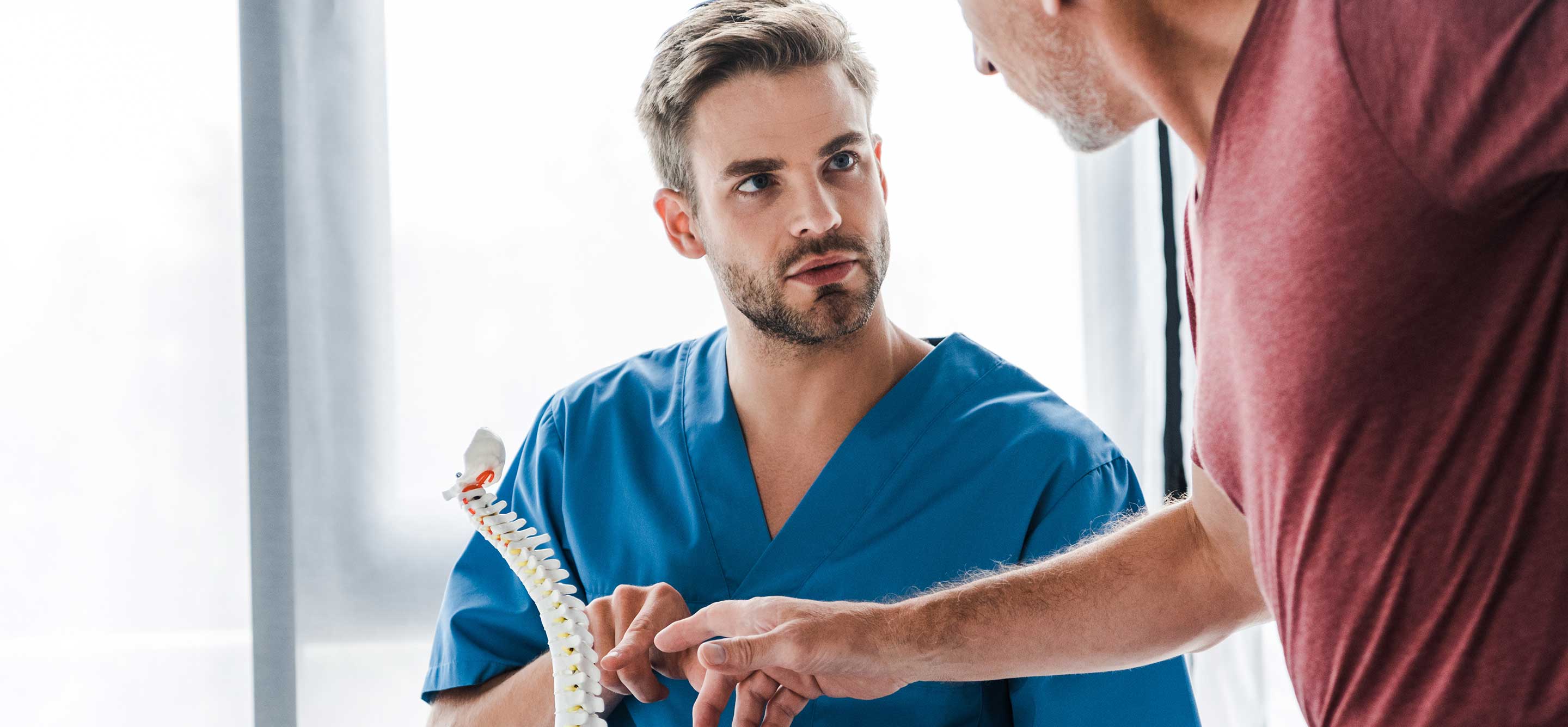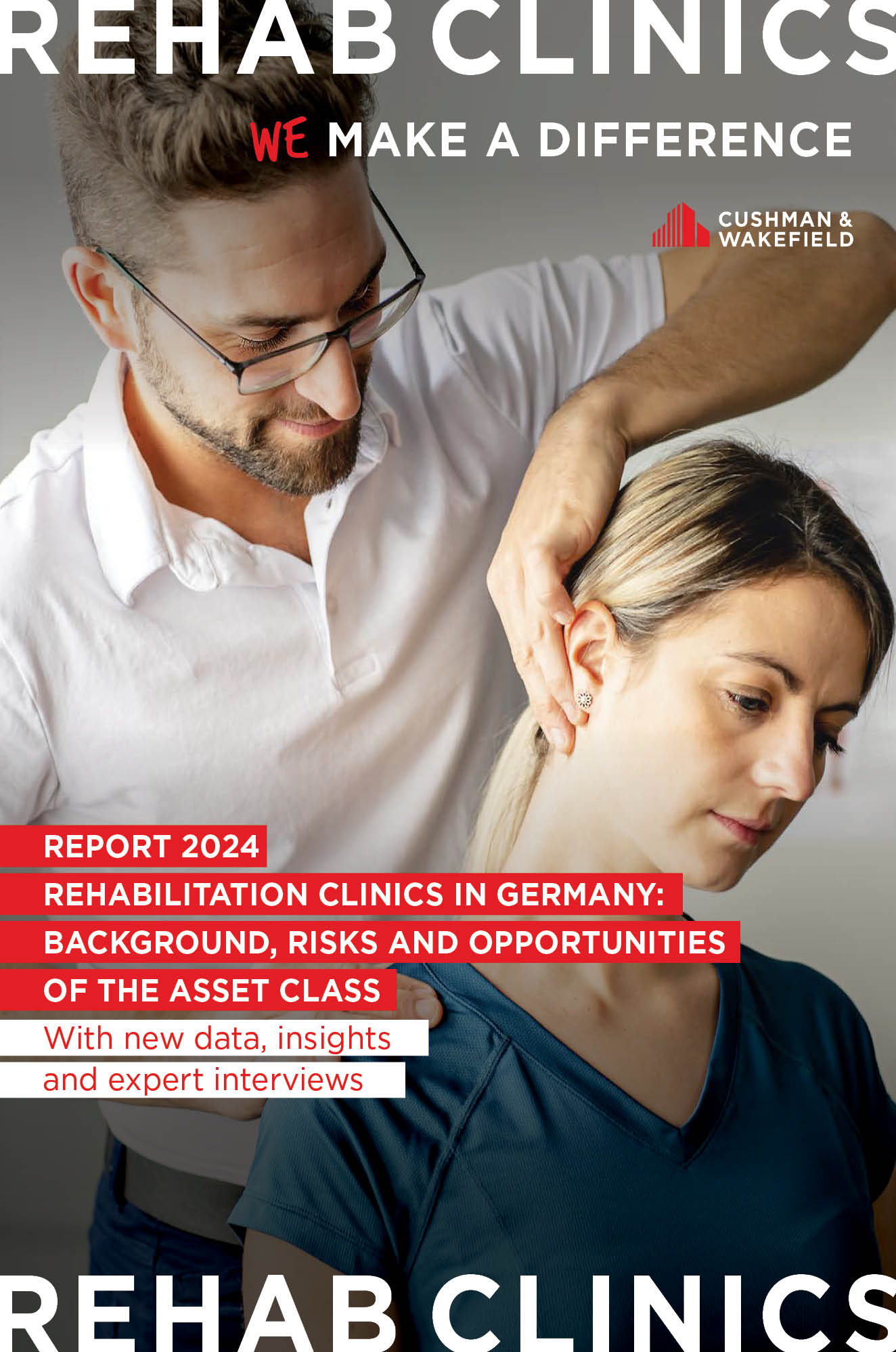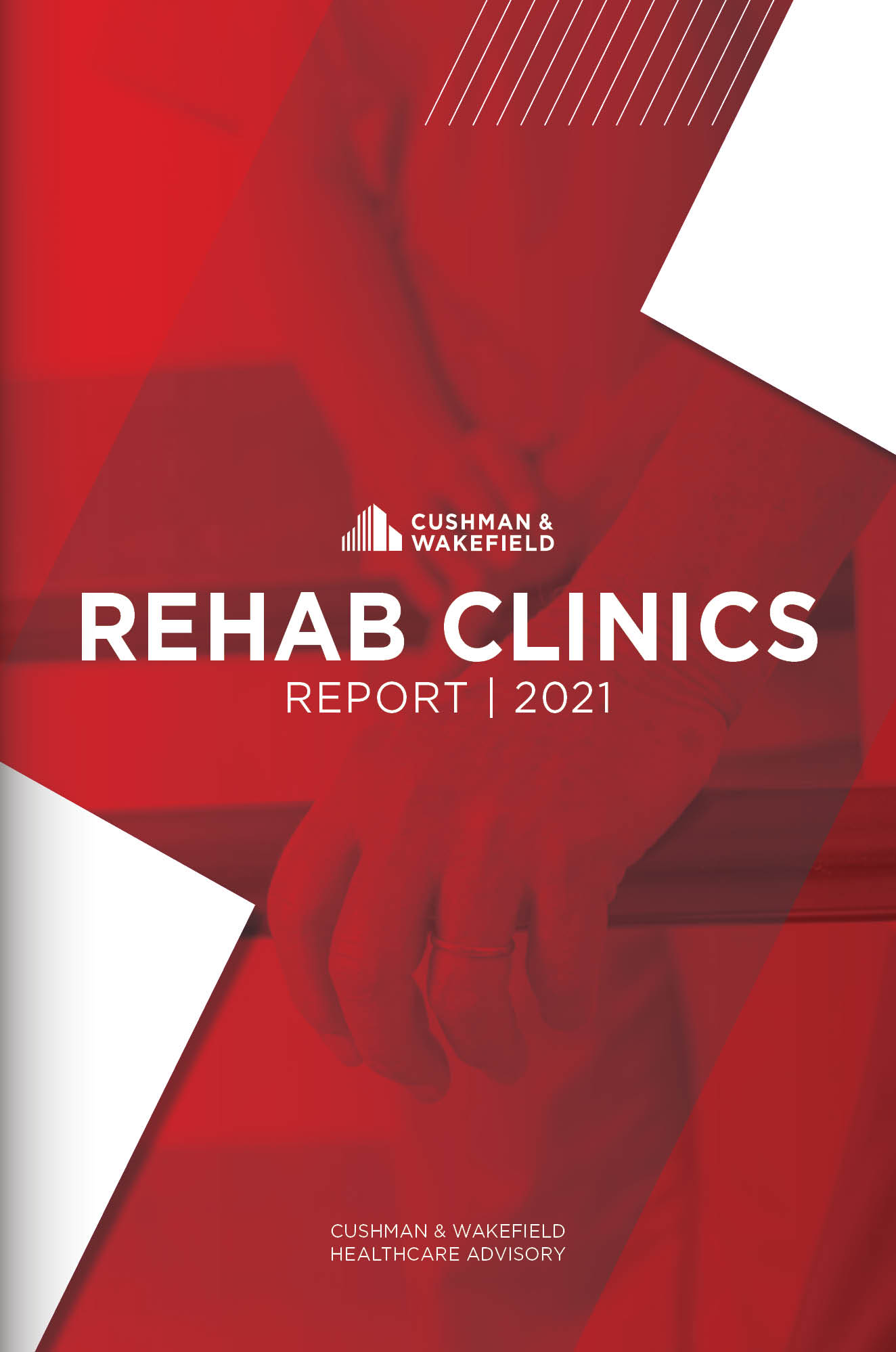Medical rehabilitation property enjoys great popularity in investor portfolios due to its stable utilisation rates, secure cash flows via long-term leases, low-cost risks and attractive returns. However, the German operator market also presents challenges, characterised by fragmentation and smaller private providers operating their own properties. Currently changes in the financing structure, rising energy costs, stricter quality standards and a shortage of skilled labour are causing economic difficulties for small operators in particular. In-depth analysis of operator quality and profitability against the background of current and future requirements is therefore of crucial importance.
Over the last 30 years, the German rehabilitation clinic landscape has undergone major structural change: Alterations to the legal framework in the 1990s led to temporary challenges - for example, the number of people entitled to inpatient rehabilitation stays was reduced, the duration of service provision was more strictly limited and the interval between treatments was increased. In addition, the patient’s contribution to rehabilitation costs rose by almost 50 percent and employers were now able to count days off for rehabilitation stays as vacation days taken. However, the increased demand for rehabilitation and preventive measures due to the changing world of work and the higher retirement age has stabilised the industry again. Despite the pandemic years of 2020 and 2021, facility and patient numbers have stabilised and utilisation rates have risen continuously.
Focus of the report
- What characterizes the German market for rehabilitation clinics? In the report you will find well-founded background knowledge with updated data and new insights
- Which developments are particularly shaping the market with a view to the future? What are the resulting opportunities and risks for the asset class?
- In conversation: Leading investors provide exclusive firsthand industry insights
What is currently driving the German market for rehab properties in particular and what opportunities does this present? This follow-up to our 2021 report, provides well-founded background knowledge enriched with updated figures and analysis of the latest developments in the market, as well as information on the planned hospital financing reform. Expert interviews with Oliver Spiewak, Head of Transaction Management Healthcare at Primonial REIM, and Thomas Otto, Head of Acquisitions Commercial DACH at PATRIZIA Deutschland GmbH, also provide exclusive firsthand industry insights: Primonial REIM is known as a leading investor in the German healthcare sector, while the globally active PATRIZIA SE AG has been investing in property and infrastructure for 39 years.








